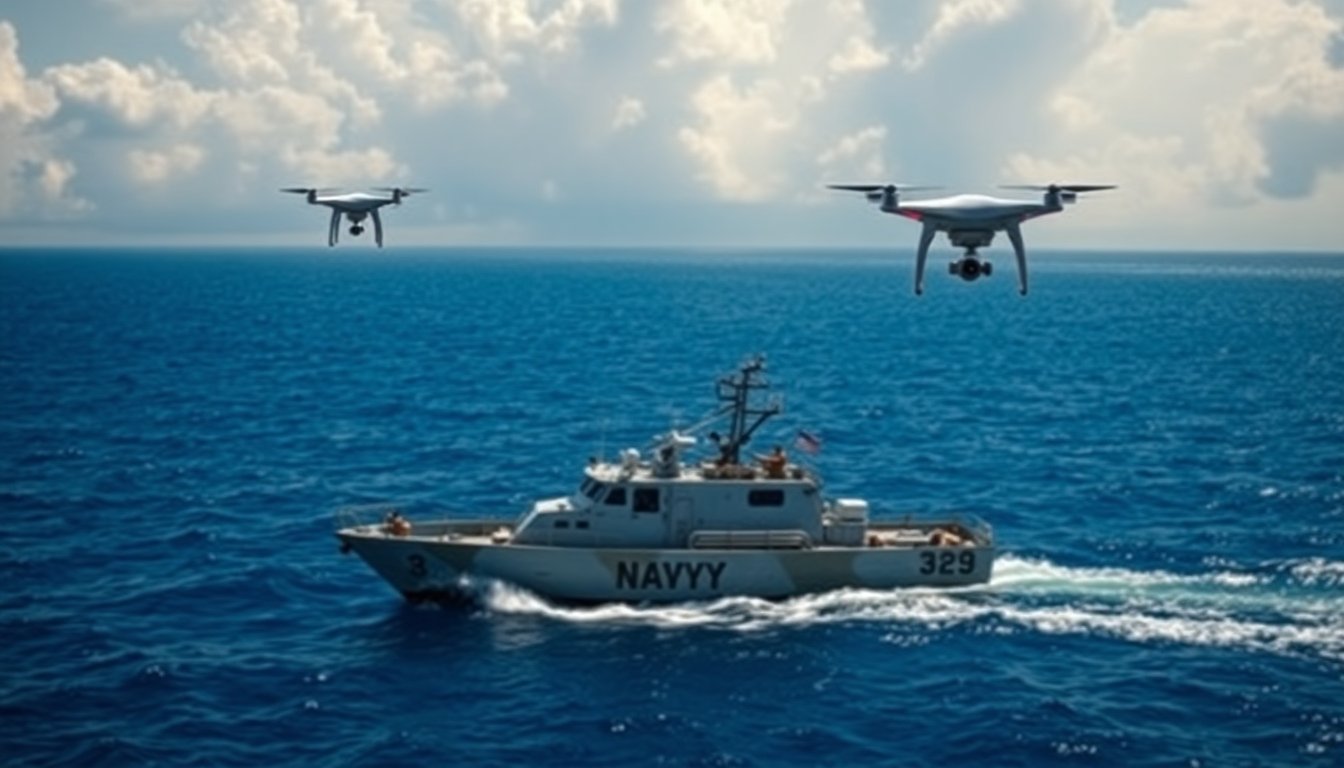Table of Contents
The facts
UPDATE AT 10:00 AM – The battle against drug trafficking is intensifying as the U.S. military escalates operations in the Caribbean. Recent strikes have targeted vessels suspected of transporting illegal narcotics to U.S. shores. Our reporters on scene confirm that five boats have been destroyed since early September.
Potential land-based actions
The situation is rapidly evolving: the focus is shifting towards potential land-based actions in Venezuela. President Trump and his administration are exploring various options to address the growing drug crisis. Authorities are concerned about the implications of this escalation on regional stability and security.
Military actions escalate in the Caribbean
The U.S. military has intensified its counternarcotics mission, targeting several boats off the coast of Venezuela. A recent operation led to the destruction of a vessel allegedly involved in transporting drugs intended for the United States. These military actions underscore the heightened focus on drug trafficking as a national security issue.
Trump’s justification for military strikes
President Trump has publicly defended recent military actions by citing a significant rise in drug trafficking from Venezuela to the United States. He remarked, “We are certainly looking at land now because we have got the sea very well under control.” This statement highlights the administration’s aim to extend military operations beyond the sea, potentially including ground strikes targeting drug trafficking networks in Venezuela.
Political implications of military strategy
The military’s increased focus on Venezuela extends beyond drug enforcement. It connects to wider geopolitical goals. The Trump administration has aimed to remove Venezuelan President Nicolas Maduro for years. Officials accuse him of enabling drug trafficking and other criminal activities. Additionally, the CIA’s covert operations in Venezuela complicate the situation further. These developments raise questions about the U.S.’s long-term strategy in the region.
Responses from Venezuelan leadership
President Maduro has firmly opposed U.S. intervention, asserting that Latin America does not need foreign interference. He has accused the Trump administration of creating a false narrative to justify regime change while attempting to control Venezuela’s vast oil reserves. According to his government, U.S. military operations are not genuinely focused on drug combat but are instead aimed at destabilizing his administration.
Future of U.S.-Venezuela relations
The ongoing conflict raises questions about the future of U.S.-Venezuela relations. Venezuela is facing an economic collapse and widespread poverty, affecting nearly 80% of its population. Many Venezuelans have sought refuge in neighboring countries. The continuation of military actions and potential land strikes may heighten tensions, further complicating the existing humanitarian crisis.
Calls for U.S. intervention
Support for increased U.S. involvement is growing among Venezuelan opposition figures. Maria Corina Machado, a leading opposition voice and recent Nobel Peace Prize laureate, has called for stronger U.S. actions against the Maduro regime. Her remarks underscore a belief that external intervention may be essential to restore democracy in Venezuela.
Analysis of military operations
Experts express differing views on the current U.S. military strategy’s effectiveness. Some contend that a focus on maritime operations fails to address Venezuela’s significant political and economic crises. John Feeley, a former U.S. ambassador, criticized the administration’s approach, arguing that covert actions should remain undisclosed to maintain their effectiveness.
Legal and ethical considerations
U.S. military involvement in a sovereign nation raises significant legal and ethical questions. Feeley highlights the importance of transparency and adherence to the rule of law, insisting that Congress must authorize any military action. This viewpoint reflects growing public fatigue over foreign military engagements and a call for a clear, lawful strategy going forward.
As the U.S. navigates this complex situation, the intersection of drug trafficking, political instability, and military intervention remains a critical focus for both the Trump administration and the people of Venezuela. The coming months will be crucial in shaping U.S.-Venezuelan relations and the effectiveness of efforts to combat drug trafficking in the region.


